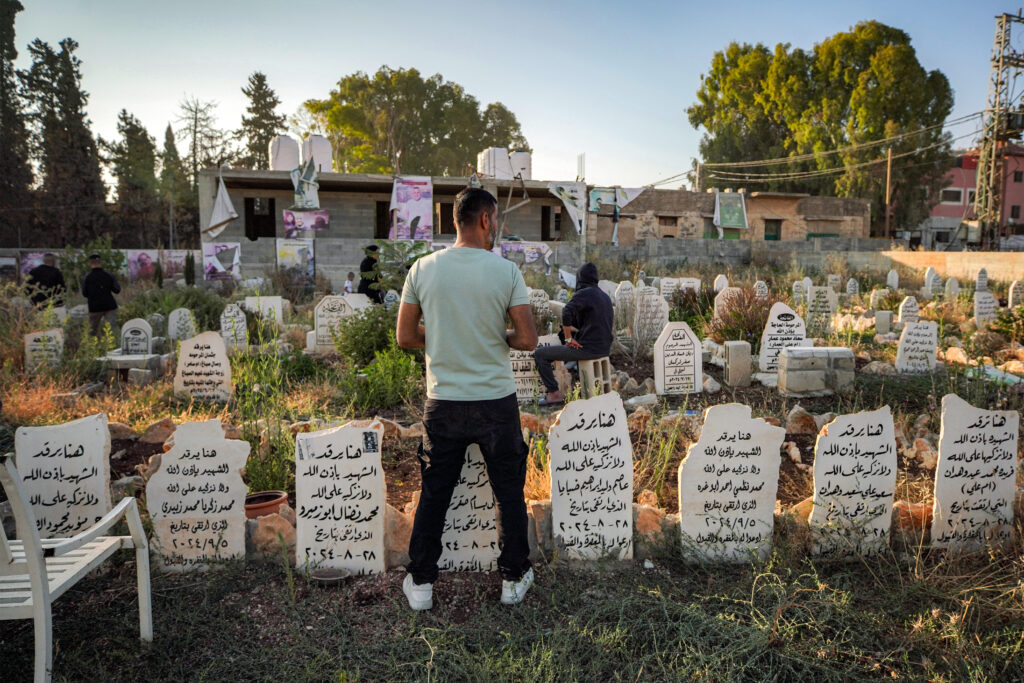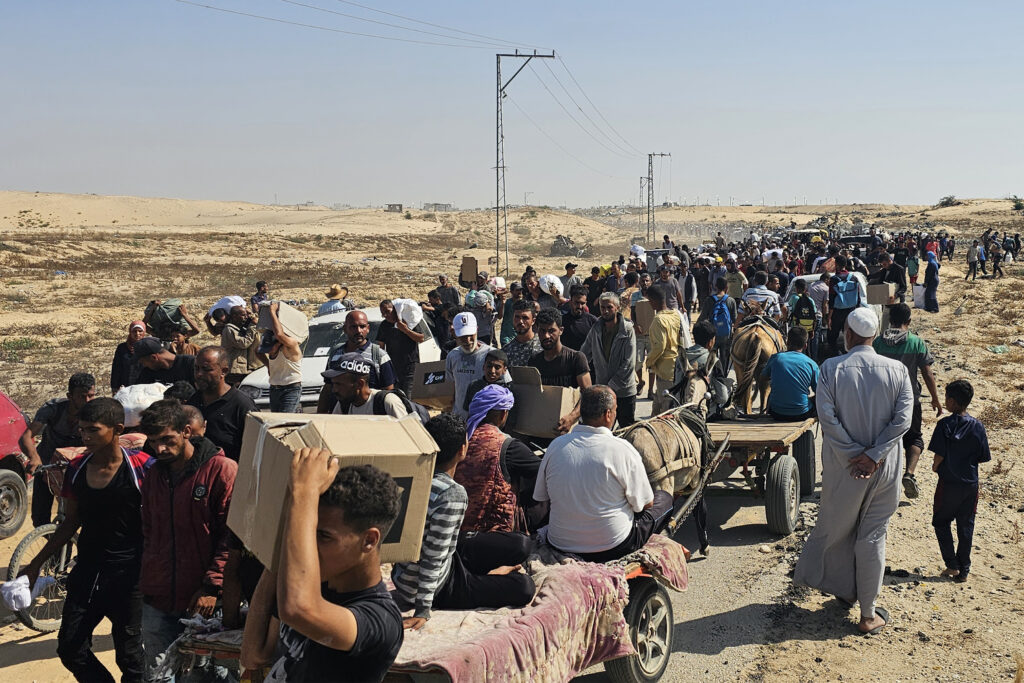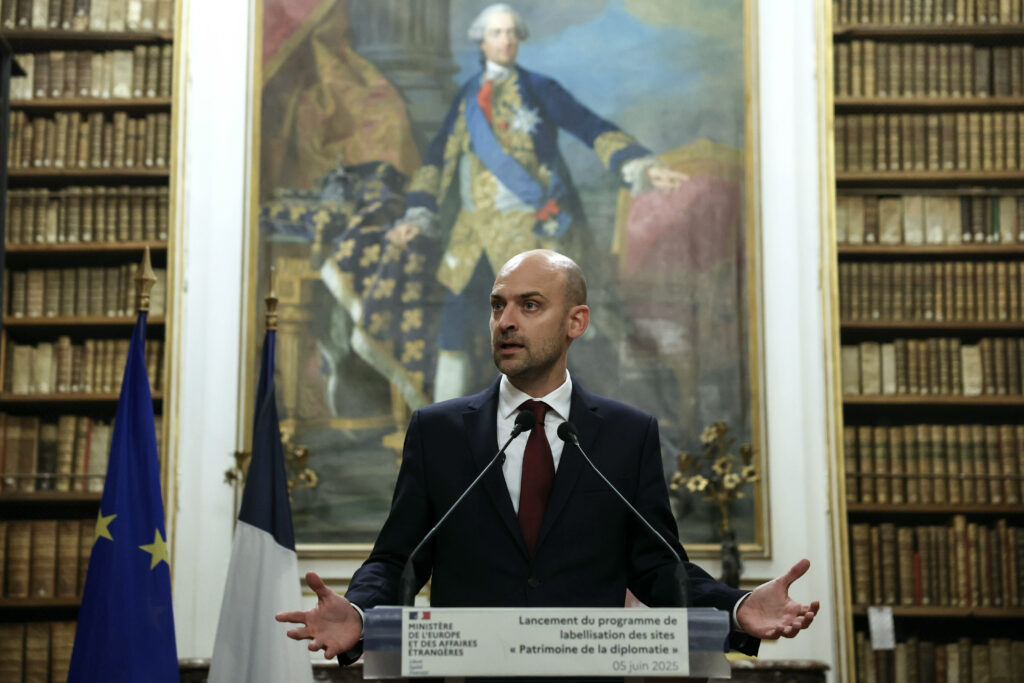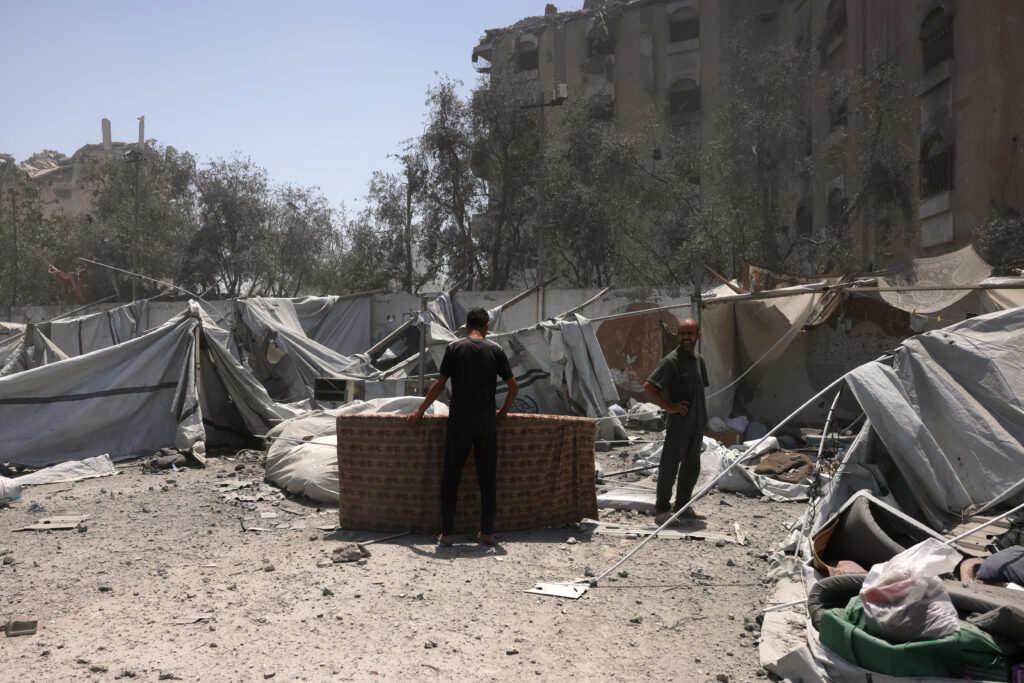‘No Eid’ for West Bank Palestinians who lost sons in Israeli raids
Abeer Ghazzawi had little time to visit her two sons’ graves for the Muslim holiday of Eid al-Adha before Israeli soldiers cleared the cemetery near the refugee camp in the occupied West Bank city of Jenin.The Israeli army has conducted a months-long operation in the camp which has forced Ghazzawi, along with thousands of other residents, from her home.For Ghazzawi, the few precious minutes she spent at her sons’ graves still felt like a small victory.”On the last Eid (Eid al-Fitr, celebrating the end of Ramadan in March), they raided us. They even shot at us. But this Eid, there was no shooting, just that they kicked us out of the cemetery twice”, the 48-year-old told AFP.”We were able to visit our land, clean up around the graves, and pour rosewater and cologne on them”, she added.Eid al-Adha, which begins on Friday, is one of the biggest holidays in the Muslim calendar.According to Muslim tradition, it commemorates the sacrifice Ibrahim (known to Christians and Jews as Abraham) was about to make by killing his son, before the angel Gabriel intervened and offered him a sheep to sacrifice instead.As part of the celebrations, families traditionally visit the graves of their loved ones.In the Jenin camp cemetery, women and men had brought flowers for their deceased relatives, and many sat on the side of their loved ones’ graves as they remembered the dead, clearing away weeds and dust.An armoured car arrived at the site shortly after, unloading soldiers to clear the cemetery of its mourners who walked away solemnly without protest.Ghazzawi’s two sons, Mohammad and Basel, were killed in January 2024 in a Jenin hospital by undercover Israeli troops.The Palestinian Islamic Jihad militant group claimed the two brothers as its fighters after their deaths.Like Ghazzawi, many in Jenin mourned sons killed during one of the numerous Israeli operations that have targeted the city, a known bastion of Palestinian armed groups fighting Israel.-‘There is no Eid’-In the current months-long military operation in the north of the West Bank, which Israel has occupied since 1967, Israeli forces looking for militants have cleared three refugee camps and deployed tanks in Jenin.Mohammad Abu Hjab, 51, went to the cemetery on the other side of the city to visit the grave of his son, killed in January by an Israeli strike that also killed five other people.”There is no Eid. I lost my son — how can it be Eid for me?” he asked as he stood by the six small gravestones of the dead young men.The Israeli military did not offer details at the time but said it had carried out “an attack in the Jenin area”. “There’s no accountability, no oversight”, lamented Abu Hjab.”One of the victims (of the strike) was just a kid, born in 2008 -— so he was only 16 years old.””I still have three other children. I live 24 hours a day with no peace of mind”, he added, referring to the army’s continued presence in Jenin.All around him, families sat or stood around graves at Jenin’s eastern neighbourhood cemetery, which they visited after the early morning Eid prayer at the city’s nearby Great Mosque.The mosque’s imam led a prayer at the cemetery for those killed in Gaza and for the community’s dead, particularly those killed by the Israeli army.Hamam al-Sadi, 31, told AFP he has visited the cemetery at every religious holiday since his brother was killed in a strike, to “just sit with him.”-‘Our only hope’- Several graves marked “martyr” — a term broadly applied to Palestinian civilians and militants killed by Israel — were decorated with photos of young men holding weapons.Mohammad Hazhouzi, 61, lost a son during a military raid in November 2024.He has also been unemployed since Israel stopped giving work permits to West Bank residents after the Gaza war erupted.Despite the army’s continued presence in Jenin, Hazhouzi harboured hope.”They’ve been there for months. But every occupation eventually comes to an end, no matter how long it lasts”.”God willing, we will achieve our goal of establishing our Palestinian state. That’s our only hope,” he said. “Be optimistic, and good things will come”.




